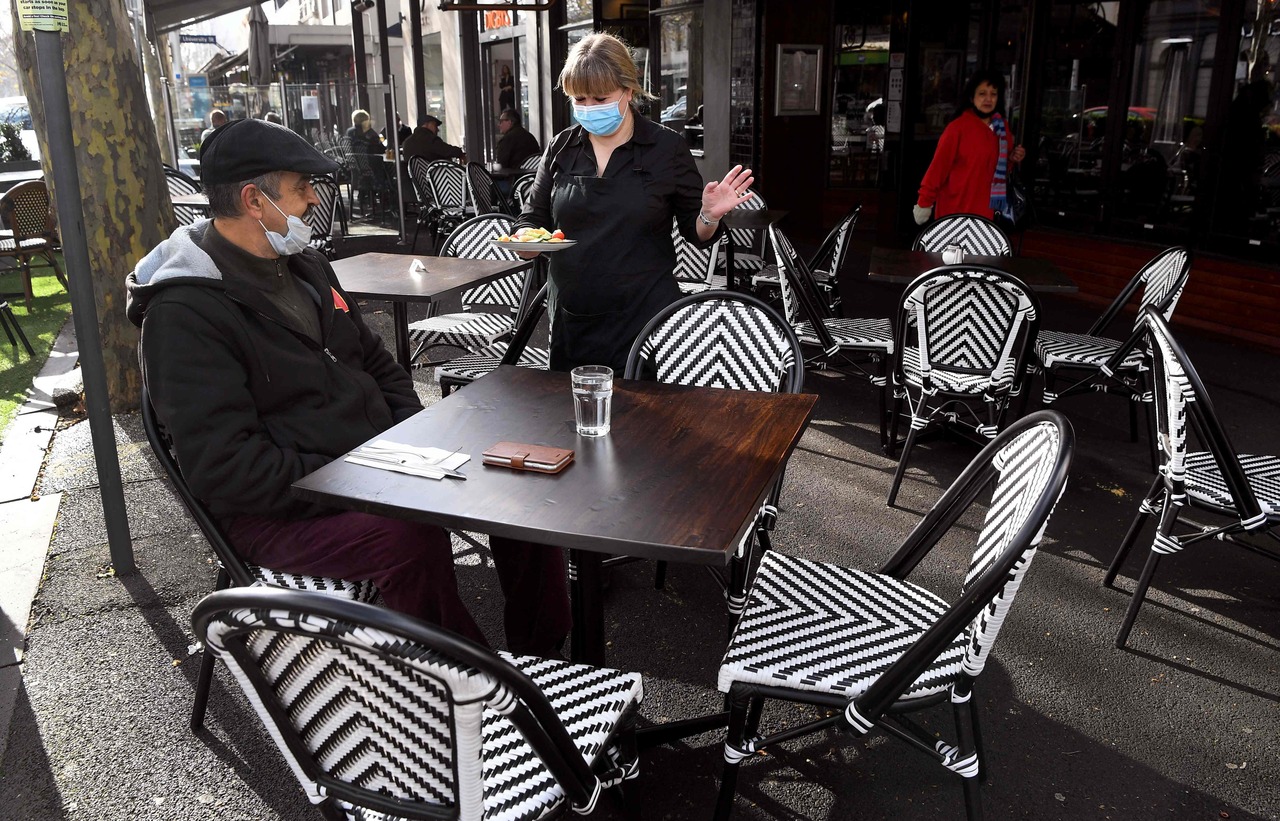Adaptability, community partnerships among key factors in building more resilient cities, say experts
Sign up now: Get ST's newsletters delivered to your inbox

In Melbourne, design guidelines have been created to help restaurants convert to outdoor dining.
PHOTO: AFP
SINGAPORE - Last June, in the midst of the Covid-19 pandemic, people in Atlanta in the US state of Georgia could go on safely distanced picnics and outings at an 18-hole golf course.
One day a week, the 46ha golf course was closed to golfers and opened to the public as a park.
This is an example of how cities have adapted to the changing needs of their people as a result of the Covid-19 pandemic, said Mr Edward Walter, global chief executive of the Urban Land Institute.
He was one of four panellists at a World Cities Summit discussion on Monday (June 21) on how city leaders can engage with their communities to build more resilient cities.
"(The summit) is a great opportunity to look at what is working in different places around the world and figure out what cities have been doing to improve the lives of their residents and provide new options for businesses," said Mr Walter, who is based in Washington.
Cities across the globe have been largely focused on encouraging safe outdoor activities, he noted. For instance, in Melbourne, Australia, design guidelines have been created to help restaurants convert to outdoor dining.
Cities such as Bogota in Colombia as well as New York City have also taken the opportunity to expand their cycling infrastructure, as more people turned to bicycles during the pandemic, he said.
GuocoLand Singapore's group managing director Cheng Hsing Yao, another of the panellists, said cities that adapted quickly to changes have been the ones that performed better during the pandemic.
He pointed to three key ingredients: the government coming up with initiatives and measures, businesses doing their part to pivot in order to retain and create jobs, and members of the community at large adjusting their lifestyles accordingly.
"The real foundation is the trust that you have built up through the years and a long period of communication. Especially now that the crisis is prolonged, this foundation is even more challenged," Mr Cheng said.
The higher education sector also has a role to play in strengthening societal resilience, said Singapore Management University president Lily Kong, also a panellist.
"Be it contributing to individual, environmental or economic resilience, universities have a responsibility to play a role... through the graduates that emerge and the programmes that we put out," said Professor Kong.
For instance, many students supported less-advantaged communities, such as migrant workers, in developing their mental resilience when they were isolated and impacted by the pandemic, she said.
Fellow panellist Amy Chester, managing director of Rebuild by Design, a research and design organisation in the United States that aims to address challenges faced by cities, said that with cities getting a grasp on the Covid-19 situation and some "beginning to turn the tide", it is time to think about the future.
For example, every dollar in Covid-19 recovery funds that goes to the communities should reap multiple benefits both on the national and local level, she said.
Being transparent and accounting for every dollar will go a long way towards building trust, even in countries like the US where there is a deep and longstanding political divide, she added.
Echoing a point by Mr Cheng, Mr Walter said cities that can adapt quickly and have good leadership to tackle challenges, such as a rising inequality gap caused by the pandemic, will do best during the crisis.


